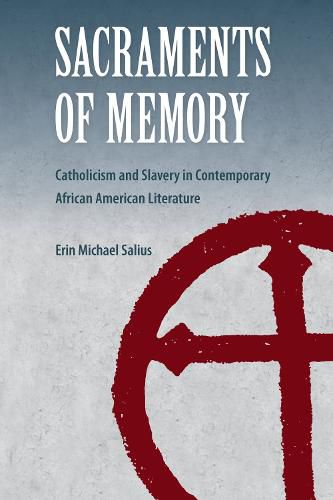Readings Newsletter
Become a Readings Member to make your shopping experience even easier.
Sign in or sign up for free!
You’re not far away from qualifying for FREE standard shipping within Australia
You’ve qualified for FREE standard shipping within Australia
The cart is loading…






This title is printed to order. This book may have been self-published. If so, we cannot guarantee the quality of the content. In the main most books will have gone through the editing process however some may not. We therefore suggest that you be aware of this before ordering this book. If in doubt check either the author or publisher’s details as we are unable to accept any returns unless they are faulty. Please contact us if you have any questions.
Catholic themes and imagery in the work of writers including Toni Morrison, Leon Forrest, Phyllis Alesia Perry, and Charles Johnson
Sacraments of Memory is the first book to focus on Catholic themes and imagery in African American literature. Erin Michael Salius discovers striking elements of the religion in neo-slave narratives written by Toni Morrison, Leon Forrest, Phyllis Alesia Perry, and Charles Johnson, among others. Examining the emergence of this major literary genre following Vatican II and amidst the Black Power and civil rights movements, she uncovers the presence of Catholic rituals and mysteries-including references to the Eucharist, Augustinian theology, spirit possession, and stigmata. These textual references occur alongside and in tension with criticisms of the Church’s political and social policies.
Salius offers a nuanced reading of Beloved that interprets the novel in light of Toni Morrison’s affiliation with the religion. She argues that Morrison, and the other novelists in this study, draw on a Catholic countertradition in American literature that resists Enlightenment rationality. She highlights allusions to Catholic tropes such as the connections between spirit possession and the hijacking of Jane’s narrative voice in Ernest Gaines’s The Autobiography of Miss Jane Pittman. Salius also identifies Augustinian theology on the prescience of God in the flash-forward narrative techniques used in Edward P. Jones’s The Known World.
These authors use Catholicism to challenge the historical realism of past slave autobiographies and the conventional story of American slavery. Ultimately, Salius contends that this tradition enables these novelists to imagine and express radically different ways of remembering the past.
Publication of the paperback edition made possible by a Sustaining the Humanities through the American Rescue Plan grant from the National Endowment for the Humanities.
$9.00 standard shipping within Australia
FREE standard shipping within Australia for orders over $100.00
Express & International shipping calculated at checkout
This title is printed to order. This book may have been self-published. If so, we cannot guarantee the quality of the content. In the main most books will have gone through the editing process however some may not. We therefore suggest that you be aware of this before ordering this book. If in doubt check either the author or publisher’s details as we are unable to accept any returns unless they are faulty. Please contact us if you have any questions.
Catholic themes and imagery in the work of writers including Toni Morrison, Leon Forrest, Phyllis Alesia Perry, and Charles Johnson
Sacraments of Memory is the first book to focus on Catholic themes and imagery in African American literature. Erin Michael Salius discovers striking elements of the religion in neo-slave narratives written by Toni Morrison, Leon Forrest, Phyllis Alesia Perry, and Charles Johnson, among others. Examining the emergence of this major literary genre following Vatican II and amidst the Black Power and civil rights movements, she uncovers the presence of Catholic rituals and mysteries-including references to the Eucharist, Augustinian theology, spirit possession, and stigmata. These textual references occur alongside and in tension with criticisms of the Church’s political and social policies.
Salius offers a nuanced reading of Beloved that interprets the novel in light of Toni Morrison’s affiliation with the religion. She argues that Morrison, and the other novelists in this study, draw on a Catholic countertradition in American literature that resists Enlightenment rationality. She highlights allusions to Catholic tropes such as the connections between spirit possession and the hijacking of Jane’s narrative voice in Ernest Gaines’s The Autobiography of Miss Jane Pittman. Salius also identifies Augustinian theology on the prescience of God in the flash-forward narrative techniques used in Edward P. Jones’s The Known World.
These authors use Catholicism to challenge the historical realism of past slave autobiographies and the conventional story of American slavery. Ultimately, Salius contends that this tradition enables these novelists to imagine and express radically different ways of remembering the past.
Publication of the paperback edition made possible by a Sustaining the Humanities through the American Rescue Plan grant from the National Endowment for the Humanities.